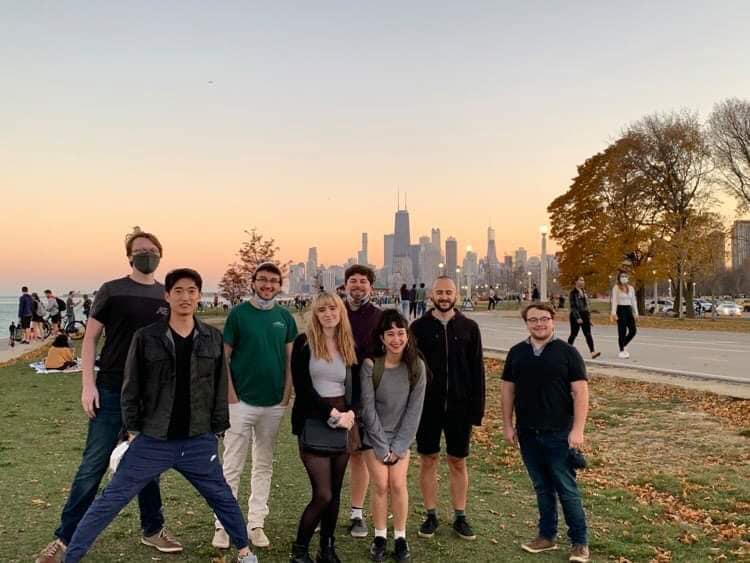
A Look into the First Semester

Last month I talked about the experiences of the second-year composers here at Columbia. But we also have 14 students here in the first-year program and I wanted to talk about them because they are all experiencing Columbia’s MFA program for the first time and are all doing excellent work.
Before writing this post, I sent a survey out to the first-year students to hear from them about their thoughts on the program. One thing that everyone can agree on is that the faculty is absolutely outstanding. Kubilay Uner, the director of the MFA program, teaches the scoring class, where students work on scoring feature-length films. Kazimir Boyle is the orchestration teacher. He covers everything from writing for all electronics to pop ensembles to full orchestra. Dan Dehaan teaches the music tech lab class where he covers anything and everything to do with the technology side of being a composer—and there is a lot of technology in modern scoring for media. Not only are all faculty members accomplished professionals, but they all are incredible educators. All of the faculty gives incredible feedback, and they are willing to take time out of their busy careers to help any student however they can. Another fairly common thing I heard from the survey was that the workload was more than expected, but incredibly rewarding. For me, when I came to Columbia I didn’t have much of a portfolio worth showing, but now after being in this program and composing so much I have plenty of music that I’m proud of showing.
Something I love about the MFA program is the diversity in the backgrounds of everyone here. While most students studied composition, there are plenty who did not. One student in their first year studied French and piano performance before coming here. There is also a student in the second year who studied drama. There are also a good number of students who studied music production before coming to Columbia to study composition. So while most everyone studied music in college, not all studied composition or theory, which leads to a really diverse group and diverse music (as you can tell from the playlist above with music from the first-year MFA students).
To go along with the diversity of backgrounds in education, there’s also a lot of diversity in where everyone is from. In a profession that filled with white males, which can be seen from who the first year students’ favorite media composers are, it’s very refreshing to see the diversity of this program. Being surrounded by so much diversity and excellent music-makers can only lead to creating better music from all the different takes on assignments and the feedback you get from those around you.
One last thing that pretty much everyone mentioned is how great the community here is at Columbia. At some schools there is a sense of competition to be the best composer, which can leave some people behind. However, the community of students and alumni is incredibly supportive and only wants to see the best for everyone. Rather than fighting to be the top dog, everyone gets lifted up to become the best composer they can be.
My favorite quote from the survey that I think anyone who comes through this program can agree on is this: “It seems impossible to do, but you find out that you are capable of more than you realize.” And to reference my theme from the last blog post, while the program is absolutely challenging, it is the best place to be if you want to grow as a musician and a human being.
